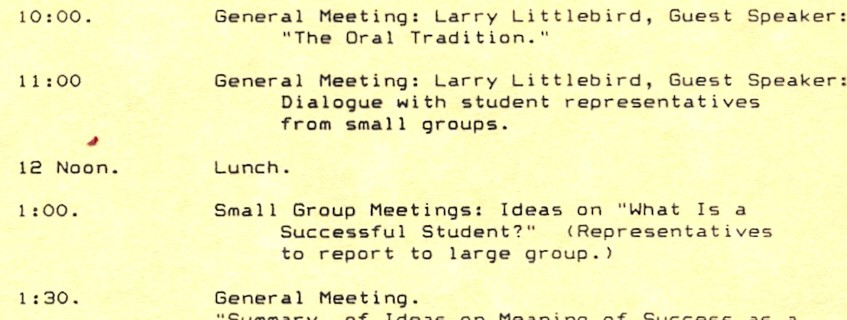Program Overview

Small Honors course sections provide students the opportunity to participate in personal classes and to engage in intensive and challenging study. Honors classes promote discussion, in-depth research and writing and close relationships with faculty and peers. Honors students may major in any undergraduate program at the university and are required to take at least one Honors course per year as well as maintain a 3.35 GPA. Eligible students are mentored by the University Honors Program staff and are encouraged to participate in the University Honors Scholars Program, which requires a minimum of 24 hours Honors credit and a 3.5 GPA.
Honors Scholar Seminars are interdisciplinary courses open to sophomores, juniors and seniors. These seminars focus on topics of immediate interest to students. Recent courses include "The City in Latin American Film," "Tocqueville and the Shaping of American Politics," "Russian Culture," "Urban Ecology," "Entrepreneurship" and "Visual Illusion and Perception." Additionally, the International Seminars combine semester-long, in-depth study with substantially subsidized travel to locations outside the United States. These seminars have traced the footsteps of Charles Darwin in the Galapagos Islands, Ancient ruins of Greece and J.R.R. Tolkien's fantasy in New Zealand. Seminar topics change every semester. Specific descriptions are posted online each term with qualified students invited to participate.
All Honors coursework is noted on a student's University of Louisville transcript, and students who complete the minimum requirements for the University Honors Program will have that designation noted on their transcript. After graduation and a final review of a student's academic record, the Honors Program will mark this designation at the end of a transcript with the notation: "Honors Program, Milestone Status: Completed." Students who earn the distinction of University Honors Scholar also graduate with the Honors Scholars designation.
Outside of the Honors Program, students may also complete honors status on the department and college level, based on grade point average and other factors determined by each academic unit. The requirements for earning departmental honors vary by department.
Throughout their time at the university, active Honors students choose to get involved in many of the extracurricular offerings of the University Honors Program such as peer mentoring, community service projects, career mentoring with experienced professionals in the local area, attendance at regional and national honors conferences and undergraduate research related to senior honors projects. To begin their college journey, any Honors students choose to live in Kurz Hall, the official Honors residence hall.
